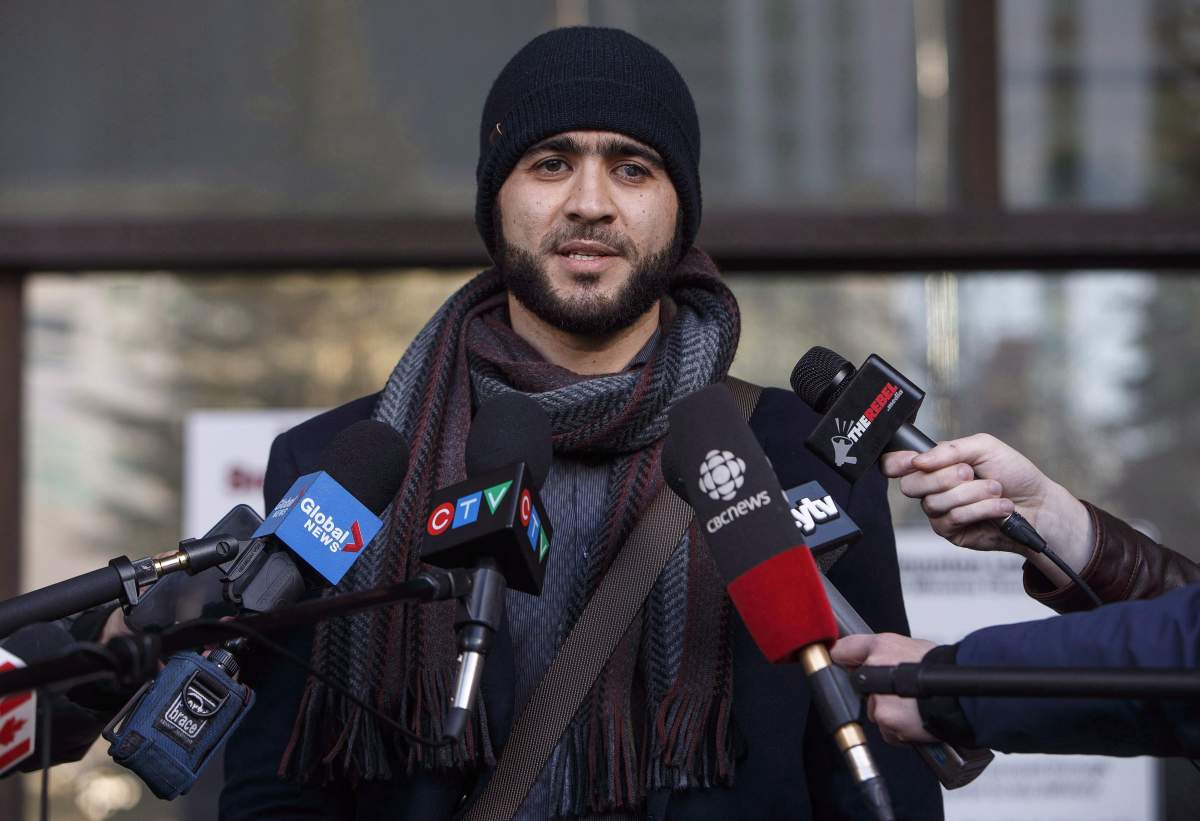An American civilian court has refused to order a military court to decide an appeal from former Guantanamo Bay prisoner Omar Khadr.

In a brief decision this week, the U.S. Court of Appeals for the District of Columbia Circuit denied Khadr’s request to force the issue.
“At this time, (Khadr) has not demonstrated a ‘clear and indisputable right’ to the extraordinary remedy,” the court said.
American troops captured Khadr, 33, as a badly wounded 15-year-old in Afghanistan in July 2002. He pleaded guilty to five war crimes, including the murder of a U.S. special forces soldier, before a widely disparaged military commission in 2010. As part of the plea deal, the court sentenced him to eight more years rather than to the jury-recommended 40 years.
Khadr later said the deal was his only way out of the infamous American prison in Cuba. He filed an appeal with the U.S. Court of Military Commission Review in 2013 after arriving in Canada, arguing the offences to which he had pleaded guilty were not war crimes when he allegedly committed them.

Get daily National news
However, the military appellate court — known as the CMCR — put his case on hold while civilian courts decided another commission case, that of Ali Hamza al-Bahlul. A military commission had convicted al-Bahlul in 2008 for doing media relations work for terrorist leader Osama bin Laden, but a civilian court quashed most of his convictions in 2013.
Khadr turned to the D.C. Circuit Court to order the U.S. Court of Military Commission review to hear the appeal.

In denying his request, the D.C. court noted some legal issues related to al-Bahlul are outstanding.
“We are confident that (the CMCR) will act upon (Khadr’s) appeal promptly following the resolution of Bahlul v. United States,” the D.C. court said.
The U.S. government opposed Khadr’s request, saying he had waited to file his appeal “after he had pocketed the agreement’s benefits, received his 32-year sentence reduction and transfer to Canada, and was beyond the jurisdiction of U.S. courts.”
It said the long delay in hearing the case was reasonable.
Khadr’s lawyers did not immediately respond to a request for comment.
His U.S. lawyer, Sam Morison, had accused the military appeal court of failing to review the validity of Khadr’s conviction, saying it amounted to a veto of his client’s appeal rights.
Last August, the D.C. Circuit Court ordered the U.S. government to respond to the request. The government argued Khadr had been released unconditionally and had suffered no prejudice from the appeal delay.
- Vegas casino owner’s ‘at par’ pricing sees 15K Canadian visitors in 1 month
- Canada has ‘limited’ seats for citizens on commercial flights amid Iran war
- ‘An eyesore’: Trump’s White House ballroom plans receive deluge of public comments
- Northern European nations will create joint evacuation plans after Ukraine







Comments
Want to discuss? Please read our Commenting Policy first.